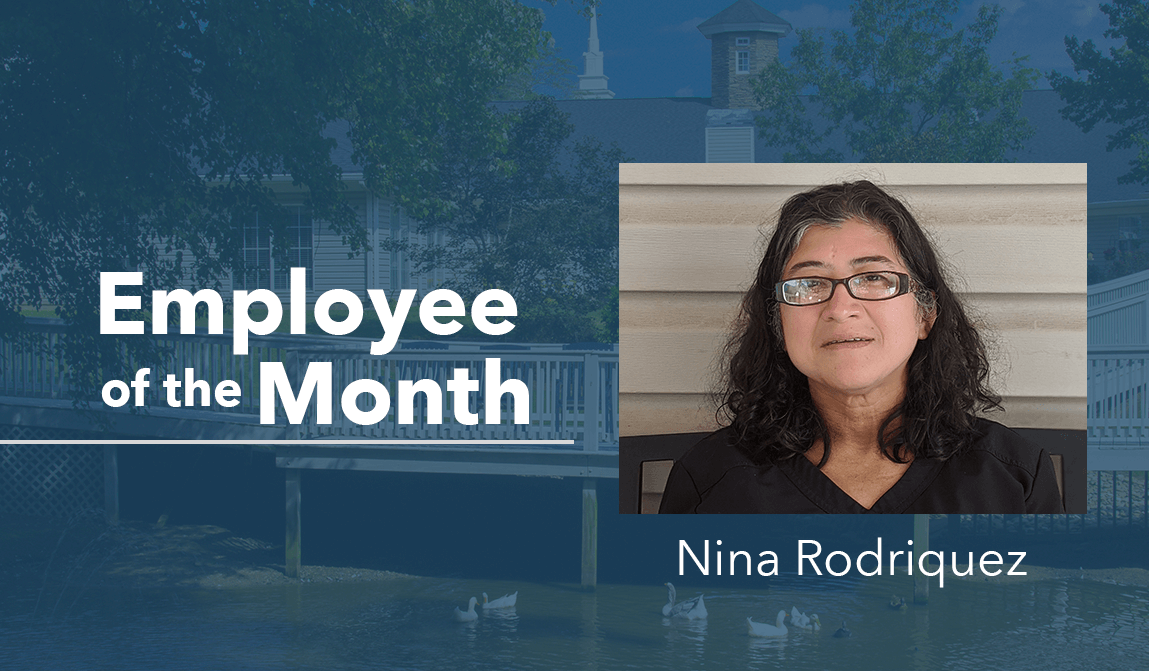New Beginnings
Welcome to 2016! As we ring in a new year, we think of new beginnings. What resolutions will we make for the coming year to better our health or our lives in general? What new adventures will we plan for the coming year? It’s a time of excitement and anticipation – a clean slate to design a brand new vision for our lives or maybe just tweak our lifestyles a bit.
Here at The Springs at Simpsonville, we are excited about our own new beginnings in 2016 as our new addition opens up soon. The new wing will bring with it new friends and opportunities to expand the family at The Springs. Join us Jan. 21, 2015 at 3 p.m. to celebrate the Grand Opening of our newest addition at the Springs — a brand new 16 room addition built to provide the best in assisted living. Email ashleyb@caravita.com to RSVP. We definitely look forward to having some new Spring Chickens!
At the same time, we understand that new beginnings can also cause anxiety and stress in addition to excitement. Even with The Springs’ enthusiasm about our new addition, we’ve certainly had some stressful moments in bringing it to the opening stage. We’ve had multiple inspections and approval processes to go through. We’ve had the responsibility of ensuring that everything is absolutely perfect for the new residents who will live there. We have a strong foundation to build upon, though, as we also are celebrating our 15th year of serving residents and families in our community.
When families are experiencing changes in a loved one’s health or lifestyle, regardless of the positive new beginnings some solutions might provide, those same solutions may also elicit stress and anxiety. Think about your child’s first day at school or your first day on a new job. Despite the hopeful enthusiasm for a new adventure, there were probably feelings of fear or nervousness about the unknown. We understand that new residents moving into The Springs will have that same combination of hope and anxiety. After all, they are often leaving behind homes they’ve occupied for years, and they may be afraid of losing their independence and the lifestyle they’ve had. They want to preserve the foundation they’ve built over the span of their lives.
In fact, David Solie, author of How to Say it to Seniors as well as numerous blog posts and presentations on the topic of communicating effectively with seniors, points to the older adults’ agenda as the key to understanding their perspective. Solie explains that we all have different agendas at different developmental stages in our lives. Older adults are no different; however, if we haven’t been in their shoes or taken time to learn from them what their agenda is, we simply don’t understand their outlook on life.
So what new opportunities excite older adults? Why aren’t they as excited about new opportunities as we think they should be? According to Solie, there are two main themes for older adults that comprise their agenda: maintaining control as they sense an increasing loss of control in their world and creating a meaningful legacy while understanding that time is running short. Considering new beginnings may be difficult for many reasons, and we are often more comfortable with what we know than with making changes. As a result, we throw up obstacles in hopes of protecting our sense of comfort and keeping any uncomfortable changes at bay. If you’re helping older family members or friends who are thinking about making lifestyle changes, understanding their agenda for that phase of life may be the key to helping them face a transition that may not seem as welcome as making annual New Year’s resolutions.
Over the years, we’ve talked with many people about their hopes as well as their fears during a time of transition. Though it may be easy for us to see the bright side that a new beginning can have, the opportunities we see as exciting, positive changes may seem a bit more overwhelming to your loved one.
Making new friends may seem like an opportunity anyone would accept without hesitation. That might not be the case, though, with many older adults. After years of building relationships with coworkers and friends elsewhere, the task of rebuilding that base of friendship may seem daunting. Maybe your loved one feels that the people in his or her new surroundings may not be open to meeting new people or that they may not have any common interests. Maybe your loved one has experienced the loss of close friends and is guarded against opening up to new friendships that he or she may eventually also lose. There may be a sense of loss at leaving old and treasured relationships behind as staying in touch becomes increasingly difficult. If you bear in mind the task of making new friends with the older adult agenda in mind, you’ll understand that your loved one is, in part, losing control of staying in touch with people who’ve been important to her and that she is faced with getting to know people who aren’t part of the legacy she’s created and who may not identify with or appreciate her legacy. If you can help her address those concerns, then you may be able to open up a positive view of a new beginning.
Moving into a new place can be an exciting adventure to plan new décor and to transform a new residence into a new home. Remember the excitement of having your first place on your own? Remember the sense of independence and the sense of unlimited potential? Well, that may not be how your older loved one feels about the prospect of making another move. In fact, your loved one has likely spent decades making his or her home the most perfect, comfortable place. Now, you’re asking your loved one to get rid of many of their belongings, pack everything else up, and start all over. The physical work involved may pale in comparison to the emotional stress of having to put forth tremendous effort to create a new home at this stage in life. Again, think about how your loved one may see his home as a form of maintaining control and as a place that contains his legacy. In the case of the house, the legacy may be very literal in that your loved one wishes to pass along his home to those he’s spent a lifetime protecting and loving. Only when you can help him see how moving into a new place might also help him achieve his agenda of maintaining some control while also creating a meaningful legacy will he see making a move as an agreeable new adventure.
Building a new partnership is much like making a new friend, but when you’re talking about a business relationship involving caregiving help of some kind, your loved one may not view this new partnership as a good thing even when you see it as a positive new beginning. Asking for help goes against the very grain of maintaining independence. If your loved one needs help with her daily activities such as bathing, dressing, cooking meals, housekeeping, and chores along those lines, needing help directly conflicts with maintaining independence. If, however, you can help your loved one see that accepting this type of new care partnership may be one way to maintain as much control and independence as possible during this phase of her life, she may be more accepting of bringing a caregiver into her home or looking at lifestyle changes that would incorporate caregiving assistance. Remember also that none of us wants our legacy to be one of dependence on others, so you must assure your loved one that accepting help now doesn’t change her legacy of being a strong woman.
Spending each day with a sense of purpose is a powerful driver that motivates most of our New Year’s resolutions for taking better care of ourselves, getting additional training or education, seeking better employment, sharing more of our time with family and friends. Regardless of our stage in life, that sense of purpose is crucial. As Solie points out, though, the mission is different for different life stages and that sense of purpose changes. Understanding the importance of your older loved one’s legacy as a major purpose in this stage of his life will help you spend more quality time with him. Making a commitment to helping him frame his legacy could be the best New Year’s resolution you could make to impact both your lives.




